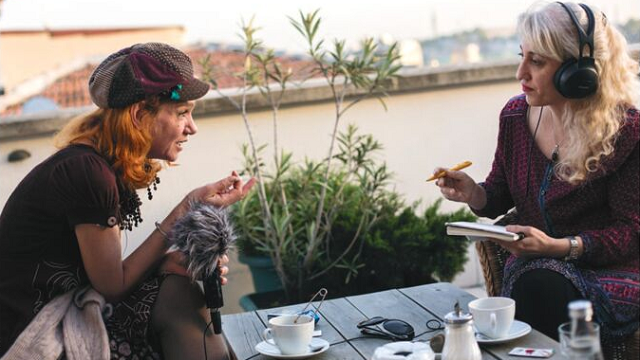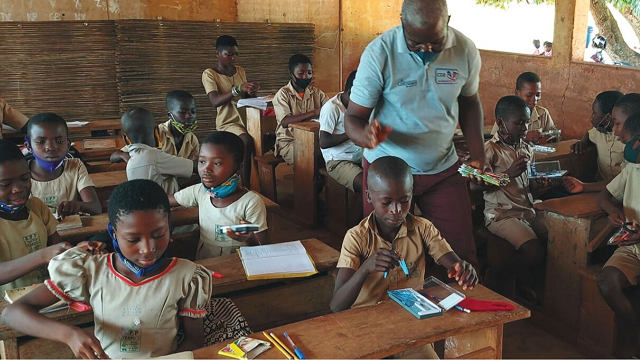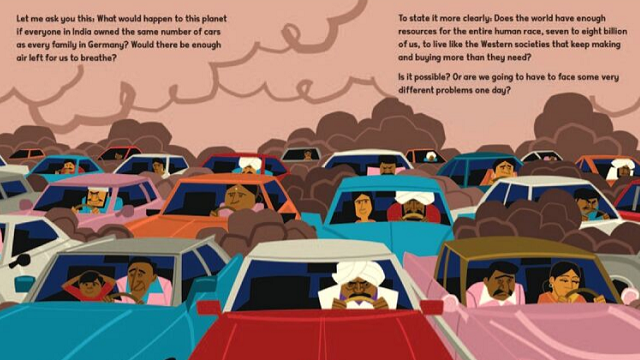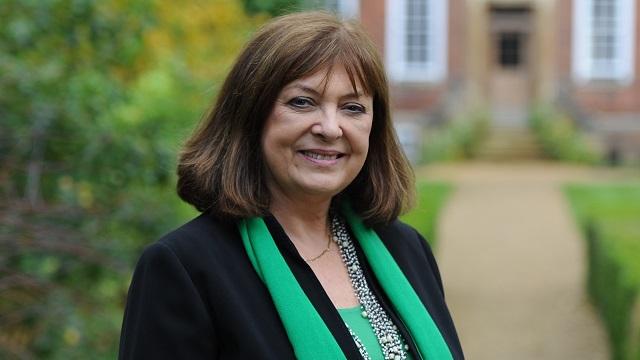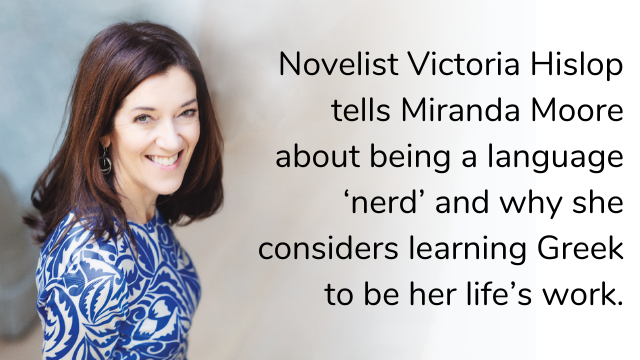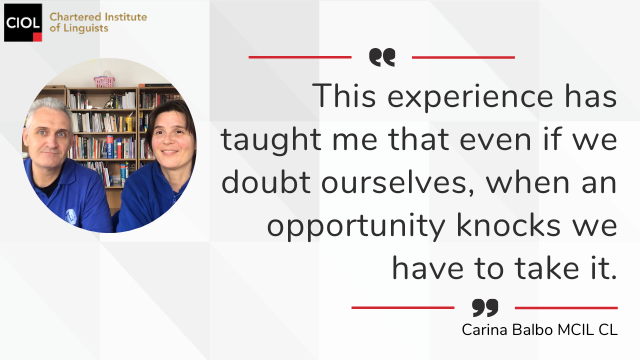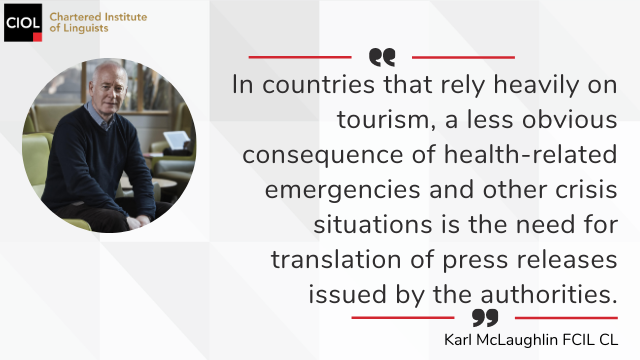-
QUALIFICATIONS
- For Linguists Worldwide
- For UK Public Services
- Preparation
- Policies & Regulation
-
MEMBERSHIP
- Join CIOL
- Membership grades
- NEW for Language Lovers
- Chartered Linguist
- Already a member?
- Professional conduct
- Business & Corporate Partners
-
ASSESSMENTS
- For Second Language Speakers
- English as a Second Language
-
TRAINING & EVENTS
- CPD, Webinars & Training
- Events & Networks
- CIOL Mentoring
-
NEWS & VOICES
- News & Voices
- CIOL eNews
- CIOL Awards
- The Linguist
- Jobs & Ads
-
RESOURCES
- For Translators & Interpreters
- For Universities & Students
- Standards & Norms
- CIOL & AI
- APPG
- In the UK
- UK Public Services
- Find-a-Linguist
Exchange of ideas
 Fuschia Hutton and mentor Oliver Lawrence outline the benefits of CIOL’s mentoring scheme from both sides
Fuschia Hutton and mentor Oliver Lawrence outline the benefits of CIOL’s mentoring scheme from both sides
CIOL launched its mentoring programme, through which seasoned translators and interpreters share their knowledge to help less experienced linguists reach their full potential, at Members’ Day 2018. Mentees can choose mentors according to the skills and expertise they most need help with. Whether you are at the start of your career and want to know how to establish yourself as a freelancer; have started to get overwhelmed and need to improve your work-life balance; or are an experienced linguist looking to branch out into a new specialisation, you can find someone to help.
Mentees and mentors do not need to work in the same languages or field, but there does need to be a clear goal. The pair will typically have an initial meeting to find out whether they are a good fit and discuss how the relationship will work. Mentoring is not just about the mentee; it helps mentors to develop their leadership and communication skills while reinforcing their subject knowledge. Mentors can also benefit from their mentee’s own background and experience.
The mentee
When I first heard about the new mentoring programme, I knew I had to sign up. Fresh from passing CIOL’s Diploma in Translation (DipTrans) and an in-depth copywriting course, I was new to the industry and wasn’t sure where to start. While keeping up with industry blogs and podcasts was priceless, I still had many questions I couldn’t answer on my own. Google did not always provide helpful results, and the sensitive nature of some queries meant it was difficult to find public answers. I knew nothing would compare to speaking to someone who had trodden the same path.
I approached Oliver because of his experience of translation, copywriting and transcreation. I was interested in how this combination of skills had worked for another translator. Our matching language combination (English and Italian) was a coincidence, but it soon became clear that having a mentor with an intimate knowledge of my target market was a bonus.
I haven’t lived in Italy since my student days but Oliver lives near Rome and most of his clients are Italian. I had assumed that I would get an equal amount of work from agencies in the UK and Italy, and was somewhat nervous about working with the Italian market. But I soon learnt that Italy has a much higher demand for marketing texts, while UK agencies tend to send me certificates and letters. Being able to discuss etiquette and Italian rates with Oliver alleviated my nervousness about working with Italian clients. He was also able to recommend Italian resources and colleagues, which helped me to network with other translators within my language combination and enabled me to choose a website translator.
I would not have picked a mentor with my language combination intentionally as I was concerned that an experienced translator would be hesitant to share knowledge with someone operating in the same market. But Oliver shares my mindset of collaboration over competition. In fact, as he is moving away from agency work in order to focus on direct clients, he has given my name to agency clients he has worked for and new direct clients he can’t accommodate.
As I started to pick up more work, my questions became more pertinent. Were the rates I quoted to a direct client in line with the market? When I missed an extremely tight deadline, had I followed up with the agency in the best way? Should I translate a poorly written press release or transcreate it to make it more suitable for the UK market?
During the process, I was very conscious of Oliver’s time. We scheduled a call once a month and I would send him a summary of the topics I wanted to discuss. I also had an opportunity to share information from my own background. I worked in marketing for years and had worked with a marketing mentor, so I was able to pass on tips about Instagram and email lists.
As the end of the year approached, I started to notice a change in my focus. Initially, with only a couple of clients on my books, I had concentrated on marketing and finding clients. However, as time progressed, my focus moved to improving and polishing my skills. My future development plans include attending a copywriting conference, hiring colleagues to revise my work and an in-depth SEO (search engine optimisation) course.
The mentor
There comes a time in every translator’s life when (without coming over all ‘noble’ about it) you want to try to give the next generation a bit of a leg up. I felt I’d reached the stage when I had something to offer. Looking back on my own career thus far, it would have been nice to have had an older head to discuss things with, and to alert me to the odd blind spot, a decade or so ago. (I’d have invested in a website much sooner, for a start.) So when an email entitled ‘Do you have what it takes to be a mentor?’ popped into my inbox, I knew what I had to do. It was, I thought, just the sort of initiative that CIOL Fellows, of all people, should support.
I’d already been involved in mentoring through another translator group – a structured programme of revising mentees’ work and giving feedback on their translation skills. The scope of the CIOL scheme seemed more business-oriented, focusing on issues such as setting up, getting organised, finding work, choosing tools, negotiating rates, and understanding client expectations and cultural issues.
I say ‘seemed’ because the brief was quite open and flexible. The CIOL platform is essentially a way to bring people together – a place for mentees to browse and choose mentors. It tries to add value by reminding you about kick-off meetings and progress reviews, but it has basically done its job once the relationship begins.
With Fuschia, it was mentoring as sounding board: discussing her ideas, commenting on her queries, adding a perspective from my own experience, warning of potential pitfalls and suggesting things she might not have been aware of (e.g. the best Facebook groups for translators and local networking opportunities). With one career already under her belt, she’s pretty clued-up, and when you have someone proactive, organised and enterprising to work with, the process is far from arduous.
And it’s not a one-way street, of course. I wasn’t surprised to benefit from our monthly discussions myself – through insights from Fuschia, the chance to reflect on the issues we discussed, and the occasional salutary reminder to follow my own advice.
But there was also an unexpected boon: referrals. Mentoring somebody who shares my language combination has given me a colleague to pass certain types of job on to. When contacted by prospects that aren’t in my target area – e.g. reputable agencies looking to place a ‘general’ translation that I wouldn’t take on – I can now direct them to a skilled colleague and personal contact who might welcome the opportunity.
Now that our mentoring partnership is over, was it worth it? Absolutely. Fuschia put up with me for a year, so it couldn’t have been a total waste of her time, and the commitment on my side – an hour or so every month – was hardly onerous. So if you’re thinking of volunteering as a mentor, get stuck in! I’ve mentored three people now (never more than two at a time), and have declined requests from others I’ve felt poorly placed to help, so I’m sure you won’t be left on the shelf. Mentoring can be successful even if you and your mentee don’t have a language combination in common, although there are advantages of sticking to your own.
So what of the future? Well, we are keeping in touch, and collaborations are possible if the right project comes along. I’d say Fuschia has a bright future in the profession – not that I can claim credit for that.
Visit ciol.org.uk/benefits/mentoring to register as a mentor or mentee
More
The Chartered Institute of Linguists (CIOL), Incorporated by Royal Charter, Registered in England and Wales Number RC 000808 and the IoL Educational Trust (IoLET), trading as CIOL Qualifications, Company limited by Guarantee, Registered in England and Wales Number 04297497 and Registered Charity Number 1090263.

